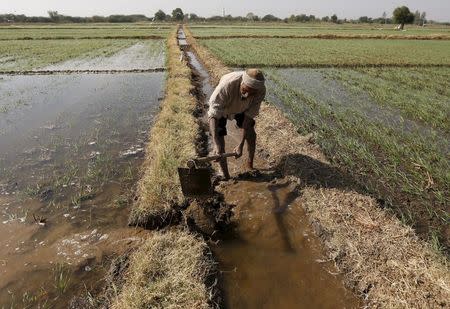Crop sowing down 5.5 pct, may hit farm output, economy

NEW DELHI (Reuters) - India's parched farms have pushed back the sowing of main crops such as wheat and rapeseed, the main winter oilseed, raising fears of lower output and higher vegetable oil imports by the world's biggest buyer of the cooking ingredient. As planting of major crops continues to lag normal progress, India on Friday cut its economic growth target to 7-7.5 percent for the fiscal year to March 2016 against its previous forecast of 8.1-8.5 percent. Any further fall in farm output could deal a new blow to the South Asian nation's growth as agriculture accounts for about 15 percent of its $2.1 trillion economy and employs nearly 60 percent of its 1.2 billion people. The first back-to-back drought in nearly three decades has depleted moisture from the soil and drained reservoirs, leading to a 5.5 percent fall in crop plantings so far in the season beginning Oct. 1, provisional data from the farm ministry shows. Although India has reasonably robust stocks of wheat, any setback in rapeseed sowing and output will force New Delhi to buy more palm oil from Malaysia and Indonesia and soyoil from Brazil and Argentina. India imported a record 14.61 million tonnes of vegetable oils in the year to October. Asia's third largest economy needs an extra 1 million tonnes of vegetable oil every year just due to its rising population. (Reporting by Sankalp Phartiyal; editing by Mayank Bhardwaj and David Evans)

 Yahoo Finance
Yahoo Finance 